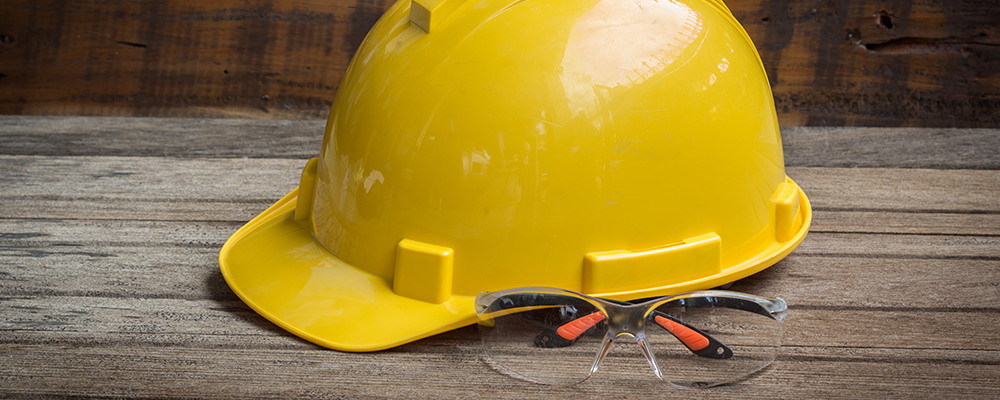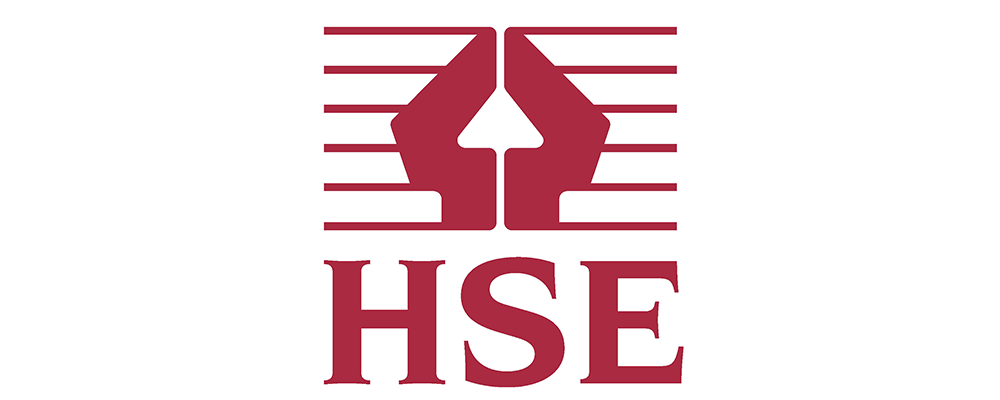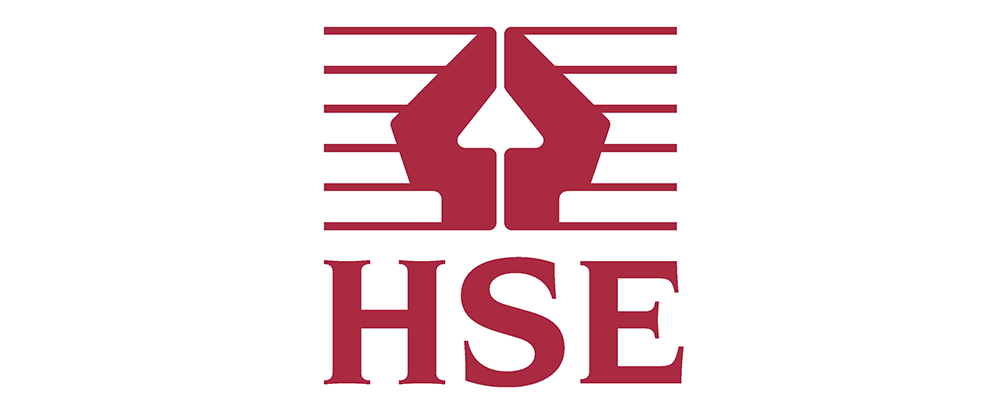
With the attention of James Stewart looking out a Rear Window with binoculars in hand, at Reynolds Training Services we like to keep a close eye on safety.
Setting our sights on safety helps sites set their sights on safety too. That’s the approach we take at Reynolds Training Services when helping workplaces and industrial sites create fully compliant environments.
Accessing our safety services is easy:
- Attend training at CATCH in Stallingborough
- We’ll bring the safety party direct to your site
- Put your operators through their paces with eLearning
With specialisms in oil and gas, occupational, process and fire safety, let’s talk about securing your safety procedures.
Good workplace safety, after all, doesn’t happen by accident.
View safety services
Related reading:

Owing to popular demand, we’ve just added November 2014 course dates to the calendar for the NEBOSH International Technical Certificate in Oil & Gas Operational Safety.
Students can travel from the surrounding areas of Grimsby, Cleethorpes, Immingham, Hull, Lincoln and the wider UK to partake in NEBOSH training which runs from 24th – 28th November 2014 at CATCH in Stallingborough.
The NEBOSH International Technical Certificate in Oil & Gas Operational Safety highlights the importance process safety plays within the petrochemical industries.
NEBOSH training in Grimsby and Lincolnshire
Delivered by trainers who have experience in the operations arena, Reynolds Training will prepare you for the exam which will be held at the same venue on Friday 5th December 2014.
Upon successful completion, candidates can display this globally recognised oil and gas qualification on their résumé.
What to do next?
We have a few places still left. Book yours now:

An Essex company has been prosecuted after four of its chemical storage tanks failed leading to a spillage of 150 tonnes of hazardous material on 11th July 2013.
A subsequent Health and Safety Executive investigation found Industrial Chemicals Limited failed to manage, inspect and maintain the tanks in question.
Speaking outside Basildon Crown Court, HSE inspector Andrew Saunders said: “This was a major spill of highly hazardous material that caused the evacuation of an industrial estate and the closure of roads in the surrounding area.
“Fortunately in this case no employees or members of the public were injured.”
Tanks not suitably inspected
The incident occurred at Titan Works on Hogg Lane when a glass reinforced plastic tank catastrophically failed. 66 tonnes of aluminium chloride were released into the surrounding environment.
A trio of tanks were damaged by the spillage. The chain reaction sparked the additional release of 32 tonnes of aluminium chloride and 52 tonnes of hydrochloric acid.
ICL were unable to demonstrate to HSE inspectors that the tanks were being:
- Operated within their design lives
- Suitably inspected and maintained to ensure they were fit for continued use
Five Prohibition Notices were subsequently served ordering ICL to stop using the remaining GRP tanks on site.
A follow-up inspection on 16th July 2013 of the company’s metallic storage vessels saw a further ten Prohibition Notices issued for the same reasons.
HSE inspector Mr Saunders commented: “Industrial Chemical Ltd’s failure to manage, inspect and maintain their GRP tanks contributed to this spillage.
“The measures needed to prevent this kind of incident are straightforward and guidance is freely available from HSE. There is no excuse for companies storing hazardous materials not to follow this guidance.”
Industrial Chemicals Limited, of Titan Works, Hogg Lane, Grays, was fined £50,000 and ordered to pay £14,231 in costs after pleading guilty to a single breach of the Health and Safety at Work etc Act 1974.
Related reading:

The Health and Safety Laboratory has stepped up the safety campaign by developing a slip resistance ratings system for safety shoes and boots.
GRIP, a one to five stars rating system, helps employers select the most appropriate footwear for their particular work environment.
Footwear manufacturers who sign up to the scheme can display the assigned rating on their product packaging.
Kevin Hallas, falls prevention technical lead at the Health and Safety Laboratory, said that ratings were given along with a “rating year”.
“So footwear tested in the 12 months to 31 March 2015 will be assigned a rating year of 2015,” he explained, writing in an article for Health and Safety at Work.
“Manufacturers will be able to use the rating until the end of the rating year and products will have to be re-rated every year to retain their status.
“For low hazard environments,” he continued, “one star footwear should be adequate to protect staff from slips. Where slips are known to occur, two or three star footwear will reduce these incidents. In more challenging workplaces, such as manufacturing areas with contamination on the floor, four or five star footwear will be more appropriate.
“Risk assessment reviews will help to determine whether the right footwear is being used — so if slips are still occurring in lower rated footwear an upgrade might be necessary, whereas if high levels of wear and no slips are noted with four star a reduction to three star might be adequate.”
In order to “get a full understanding” of the most effective footwear to use, other safety requirements such as toe protection or cleating pattern of the sole should be considered in conjunction with the GRIP ratings, he advised.
If enough manufacturers sign up to the new scheme, Mr Hallas said “it should help employers see easily whether footwear meets the standard they need”.
A footprint in the safety landscape
The new rating system came in response to “some concerns” about the accuracy of existing measuring systems.
“HSL uses instead a system of ramp testing,” Mr Hallas explained. “The ramp consists of an adjustable platform, fitted with ceramic tile flooring with a friction coefficient (CoF) typical of the average workplace floor. A fall arrest harness is attached to an overhead frame to prevent injury to the operator, who dons the footwear after the sole is rubbed with abrasive paper to simulate light use.”
“The operator carries out a series of controlled walks over the floor surface, which has a contaminant applied — either running water or a viscous glycerol solution. The operator takes a series of half steps forward then back at a defined speed, before returning to their start position. If they do not slip, the platform’s angle of inclination is increased by one degree and the procedure is repeated until a slip occurs. This is recorded as the slip angle.
“The test is repeated eight times for each of two operators. The process is then repeated with two more pairs of the same model shoe or boot to account for production variability. The average of the results is used to generate the GRIP rating.”
A GRIP rating is generated from the average of the results.
Slips, trips and falls remain one of the most common causes of major injury to employees at work and Mr Hallas said wet surfaces, coupled with the wrong footwear, were often to blame.
He stated: “The HSL’s one star to three star ratings reflect footwear slip resistance where water is present. To simulate environments with more viscous contaminants such as oils, the four and five star ratings also require a minimum CoF with glycerol contamination.”
The new scheme was launched on 17th June 2014 at the Safety and Health Expo in London.
Related reading:

Back in 2004, a Cumbrian head teacher decided he’d had enough of filling in “health and safety” forms before pupils could go on school trips.
In a satirical attempt to prove a point about what he saw as unnecessary “health and safety” restrictions on school activities, the head teacher got the kids to wear safety goggles, let them play conkers and invited the local press to watch.
The joke backfired.
In true Chinese Whispers style, word travelled across the media faster than a monkey up a chestnut tree. Before long, schools up and down the country were making children wear protective gloves and goggles or even banning conkers on “health and safety” grounds.
Keen to dispel the myth and bring some common sense into the equation, the Health and Safety Executive said that the risk from a game of conkers was “incredibly low and just not worth bothering about”.
“If kids deliberately hit each other over the head with conkers, that’s a discipline issue not health and safety”.
Related reading:

The director of a London masonry company has been handed a suspended prison sentence after being found guilty of exposing workers to harmful stone dust and ignoring notices to improve extraction ventilation.
A Health and Safety Executive investigation found that employees at Redmist International Ltd were placed at unnecessary risk of inhaling dust between January and June 2013.
The company and its director Ghausal Islam, 52, were sentenced to 10 months in prison, suspended for two years.
After the hearing at Southwark Crown Court, HSE inspector Saif Deen said: “Stone dust can be incredibly harmful and exposure, even over a relatively short period, can have devastating consequences.
“It is therefore vital that companies involved in processes that generate airborne dust have effective systems in place to extract harmful particles, and provide adequate personal protective equipment for their employees.”
Investigation uncovered serious safety concerns
Southwark Crown Court heard that regular polishing and grinding work meant stone dust was commonplace at Redmist.
If inhaled, stone dust can cause:
- Occupational asthma
- Chronic obstructive pulmonary disease (COPD),
- Silicosis
- Or even lung cancer
As such, the court was told it was vital that adequate measures were in place to limit exposure.
The HSE’s inspection on 24th January 2013, however, found that an extraction ventilation system in the factory was inadequate and hadn’t been properly tested to ensure it was fit for purpose.
Two Improvement Notices were subsequently served requiring urgent changes, but follow-up visits on June 5th and 13th confirmed that no changes had been made, leaving employees facing potentially harmful exposure.
HSE inspector Saif Deen commented: “The company, under the lead of Ghausul Islam, displayed a poor performance over the period of our investigation. The clear concerns we identified were blatantly ignored and HSE will not hesitate to prosecute when worker safety is compromised in this way.”
The director, of Staverton Road, NW2, was sentenced to 10 months in prison, suspended for two years, and ordered to pay £9,000 in costs for breaching Section 37 of the Health and Safety at Work etc Act 1974.
Redmist International Ltd, of Standard Road, Park Royal, escaped penalty for separate breaches of the same legislation because it is no longer trading and is the subject of a winding up order.
Had it the means to pay, the judge ruled that a £50,000 fine would have been imposed to reflect the seriousness of the failings.
Related reading:

For as sure as we need strong health and safety regulations, we need an equally robust system of communication to ensure we all fully understand our duties.
The Health and Safety Executive’s myth panel is one such facilitator of pure safety information. Since 2012, the panel has been hard at work bringing clarity to all duty holders and exposing inaccurate or flagrantly overzealous interpretations of safety regulations.
The national regulator has just ruled on its 300th case.
Judith Hackitt, chair of HSE and the Myth Busters Challenge Panel, said: “I never cease to be amazed at the cases brought to our attention and they just keep on coming.
“‘Health and safety’ is trotted out all too often, an easy way to hide the real reason for refusal to do or allow something, which is usually just bad customer service. Health and safety regulations are there to deal with risks to life and limb in the workplace; not for jobsworths to hide behind.”
The 300th case involved a village pub which decided against having a mirror in its disabled toilet on grounds of ‘health and safety’ reasons. A decision was rendered and the panel dismissed the business’ protestations as a “feeble excuse to mask the real reason” of “cutting costs”.
Mark Harper, Minister for Disabled People, who is also the minister with responsibility for the Health and Safety Executive, said: “The Health and Safety at Work Act has saved thousands of lives in its 40 years and we should celebrate its achievements.
“What it hasn’t done is stopped anyone putting a mirror in a disabled toilet, children from playing conkers, or any of the other excuses blamed on health and safety.”
More on the Myth Busters Challenge Panel
The Myth Busters Challenge Panel invites members of the public to bring forward instances where they believe ‘health and safety’ has been cited wrongly.
The panel, which is made up of experts from a variety of backgrounds, then considers the facts, renders a ruling and publishes in a bid to put to bed any unfounded myths.
Related reading:

This half-day oil and gas training course provides delegates with an understanding of the role process safety plays in the bulk liquid warehousing and process environment.
Undertake Process Safety in a Bulk Liquid Environment at our Grimsby based specialist facilities or, alternatively, we can bring the training direct to your site.
The session provides delegates with an understanding of the role process safety plays in the bulk liquid warehousing and process environment.
Learning outcomes
At the end of this session, you will be able to:
- State the definition of ‘Process Safety’
- Identify the factors affecting process safety
- Recognise key tools used to measure process safety performance
- State the objectives of operating principles and define the core areas they are built around
What to do next?
Find out more about how this oil and gas training course can help you comply with national regulations.
View courses

Scroll back a couple of hundred years and the British workplace was a dismal and dangerous environment.
Friedrich Engels, a German social scientist, spent time in Manchester’s slums and documented his findings in his book: “The Condition of the Working Class in England”. It makes chilling reading.
Factory workers endured the most appalling conditions and life expectancy was short.
Deformity and stunted growth, caused by constant bending and stooping, affected most workers. Infectious disease was rife. People with missing hands or limbs were a frequent sight on the streets of Manchester and death from tetanus was common.
But worst of all was becoming entangled in the giant strapping on the machines:
“Whoever is seized by the strap is carried up with lightening speed, thrown against the ceiling above and the floor below with such force that there is rarely a whole bone left in the body and death follows instantly”.
One poor girl died, “utterly mangled”, after being flung round by the strap 50 times.
Enlightened times
We are fortunate to be living in more enlightened times, the lessons of the past forming a strong foundation upon which today’s health and safety regulations reside.
Some, however, argue that the new age of health and safety has gone too far. They cite the “elf an’ safety brigade” as the creator of protectionist regulation which weighs heavy around the neck of capitalist prosperity.
Perhaps the state should review the current system – in fact, they are. Likewise, commercial enterprises need to regularly review their internal safety systems.
We must always take stock of the past however, balancing these opinions and exaggerated stories of safety against a time when industrial progress was put over safety.
The times have a’ changed and, indeed, are a changin’ – this is to be welcomed. And, when pitting personal prosperity over personal safety, we know who we are batting for every time.
Related reading:

A two week long national inspection by the Health and Safety Executive resulted in enforcement action at one in six of the construction sites visited.
While final figures are yet to be confirmed, conditions were deemed so poor in some situations that the work had to be stopped on at least 13 occasions.
The HSE’s chief inspector, Heather Bryant, said: “We recognise the construction sector’s progress in reducing the number of people killed and injured by its activities.
“But it is clear from these figures that there is an unacceptable toll of ill-health and fatal disease in the industry.”
A total of 560 sites were visited and enforcement notices were served at 85 of them. Action by the regulator included:
- 13 prohibition notices served (this is where certain work or practices must be stopped until improvements are made)
- 107 improvement notices handed out
- A total of 239 health-related notices of contravention served at 201 of the sites
De-constructing site safety standards
Ms Bryant commented: “To encourage the industry to treat health issues in the same way as safety, HSE’s inspectors will consolidate the efforts of this initiative throughout the rest of the year by looking at the prevention and control of health risks in construction, alongside their continued assessment of the management of safety risk issues.
“We will make sure the construction industry ‘Thinks health’ as well as safety.”
The targeted inspections honed in on significant health issues such as respiratory risks from dusts containing silica materials, exposure to other hazardous substances such as cement and lead paint, manual handling, noise and vibration.
Related reading:












